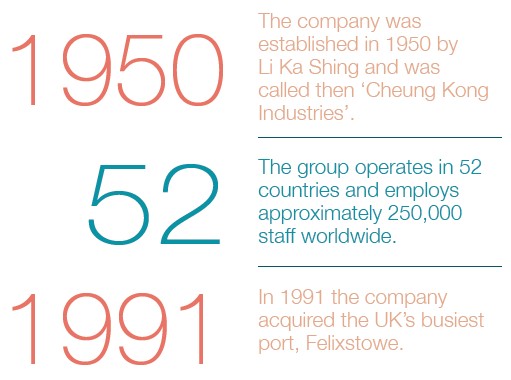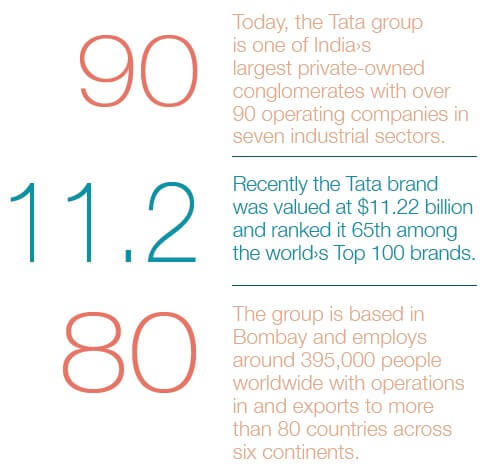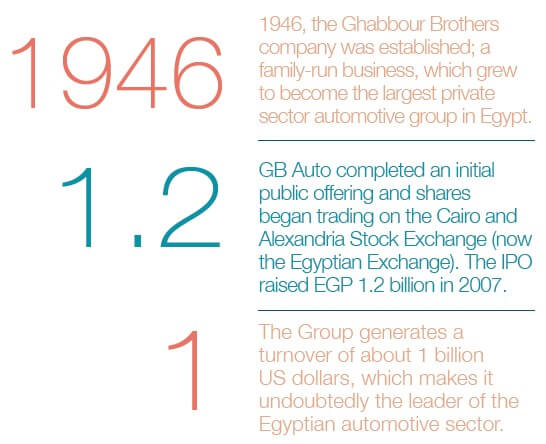Kuwait – Mohammed Al Kharafi Group
Mohammed Abdulmohsin Al-Kharafi & sons Company (MAK Group) is a Kuwait based group with diverse activities worldwide. The group started as a trading company more than 100 years ago, and has since expanded and diversified its activities into construction, manufacturing, commerce, marketing and hospitality throughout the Mideast, Africa and Eastern Europe. The Kharafi family’s wide investment portfolio includes shares in Krispy Kreme, U.K. construction firm Costain, Mobile Telecommunications Co., and the National Bank of Kuwait.
The group’s main activity has been general contracting and civil construction, which made the company a leader in the construction boom in the Gulf during the fifties and after. It has construction contracts in more than 30 countries worldwide. MAK group has been certified as conforming to International Quality Standards – ISO9001:2008 for its quality commitment. Besides construction, the group also owns Americana; the largest food company in the Middle East introducing U.S fast food brands such as KFC, Pizza Hut, TGI Fridays to the Gulf. The Kharafi family is a major player in the Kuwaiti news paper industry.
Nasser Al Kharafi, today, is the Chairman of the conglomerate. His estimated fortune is of several billions as of 2008 and he is considered amongst the 50 richest men in the world. M. A. Kharafi Group operates in more than 25 countries with an annual turnover of US $5 Billion and more than 120,000 employees.
Hong Kong – Cheung Kong Holdings Limited
Based in Hong Kong, Cheung Kong (Holdings) Limited is a leading multi-national conglomerate. The company was established in 1950 by Li Ka Shing and was called then ‘Cheung Kong Industries’. The company obtained its name from the Yangtze River that flows through China and aggregates many streams. The core business of the company was plastic, however, in 1958 the company ventured into the real estate business with great success and repeated its expansion into many other industries. In the 80s Li Ka Shing pursued his philanthropic activities by establishing the Li Ka Shing Foundation to improve life conditions in China as well as the Shantou University in his hometown. In the years to follow many acquisitions followed in the electronics and energy sector. In 1991 the company acquired the UK’s busiest port, Felixstowe. Hutchison Whampoa Limited, a Fortune 500 company that had been acquired by Cheung Kong in 1979, introduced its 3G mobile video and multimedia services in the UK, Italy, Austria, Sweden, Ireland, Australia, and Hong Kong.
Over the years Li Ka Shing’s company became Cheung Kong (Holdings) Limited; a group that –in Hong Kong alone- includes eight listed companies with a combined market capitalisation of approximately HK$898 billion (28 February, 2011). The group operates in 52 countries and employs approximately 250,000 staff worldwide.
Today, the diversified portfolio of the Cheung Kong group includes business activities in many areas such as property development and investment, real estate agency and estate management, hotels, telecommunications and e-commerce, finance and investments, retail, ports and related services, energy, infrastructure projects and materials, media, and biotechnology. Li Ka Shing is now the Chairman of his company that came from modest beginnings. He was named Entrepreneur of the Millennium at the turn of the century by The Times and Ernst & Young, UK.
India – Tata Group
This world-renowned company was established in 1868 in Bombay by a man called Jamshedji Tata; he started working in his father’s trading company before starting his own business. Today, the Tata group is one of India’s largest private-owned conglomerates with over 90 operating companies in seven industrial sectors. The group is based in Bombay and employs around 395,000 people worldwide with operations in and exports to more than 80 countries across six continents. The total revenue of Tata companies was $67.4 billion in 2009-10, with 57% from business outside India.
The present chairman of the group is Ratan Tata who took over from his uncle J.R.D. Tata in 1991. Mr. Ratan is a distinguished industrialist with years of business experience.
Tata Steel started in 1912 became the tenth-largest steel maker in the world after it acquired Corus Group in the UK in 2007, later renamed Tata Steel Europe. Tata produces steel at the lowest cost in the world. Tata Motors is among the top five commercial vehicle manufacturers in the world and has recently acquired Jaguar and Land Rover. It made India’s first developed car in 1998 and recently launched the world’s lowest-cost car, the Tata Nano. TCS is a leading global software company, with delivery centers in the US, UK, Hungary, Brazil, Uruguay and China, besides India. Tata Global Beverages is the second-largest player in tea in the world. Tata Chemicals is the world’s second largest manufacturer of soda ash and Tata Communications is one of the world’s largest wholesale voice carriers.
Brand Finance, UK, recently valued the Tata brand at $11.22 billion and ranked it 65th among the world’s Top 100 brands. BusinessWeek magazine ranked Tata 17th among the “50 Most Innovative Companies” and the Reputation Institute, USA, in 2009 rated it 11th on its list of world’s most reputable companies.
Egypt – The Ghabbor Group
In 1946, the brothers Kamal and Saddek Ghabbour established the Ghabbour Brothers company; a family-run business, which grew to become the largest private sector automotive group in Egypt. The core business of the group has always been vehicles; GB Auto is a leading diversified automotive company in North Africa and the Middle East and a part of GB’s capital is engaged in a complete automotive product range from manufacturing, assembling, importing and distributing in addition to dealing in automotive related products such as tires and spare parts. The company started to diversify in the late forties when GB Auto expanded into trading and all car related activities. In addition, in 1972, Sakkar travel group was establishes by Baher Munir Ghabbour. The group gained a reputation of being a leading company in the tourism sector not only in Egypt but all over the world. Today, it has branches in France, the UK, India, and the United States.
After 1973’s new trading policies in Egypt, the company started to represent different international manufacturers such as Bosch and others. They then established service centres for their auto-representations, which was the initial approach to the industry. By 1986, they proceeded to setup operations in the manufacturing of bus-bodies.
In 1991, Dr Raouf Ghabbour -second generation family member- ventured into the field of agriculture and the cultivation of fruits and vegetables. While developing export markets in Europe and the Middle Eastern countries, the company started retailing crops domestically through its own retail chain.
In 1995 the Ghabbours got involved into the assembly of cars and light commercial vehicles. In short, the family developed into every industry that fed into auto manufacturing. GB Auto completed an initial public offering and shares began trading on the Cairo and Alexandria Stock Exchange (now the Egyptian Exchange). The IPO raised EGP 1.2 billion in 2007.
Today, the Ghabbour Group employs over 6000 employees, operates 3 factories, and runs 20 retail outlets and 8 service centers. The Group generates a turnover of about 1 billion US dollars, which makes it undoubtedly the leader of the Egyptian automotive sector.
Tharawat Magazine, Issue 10, 2011




















